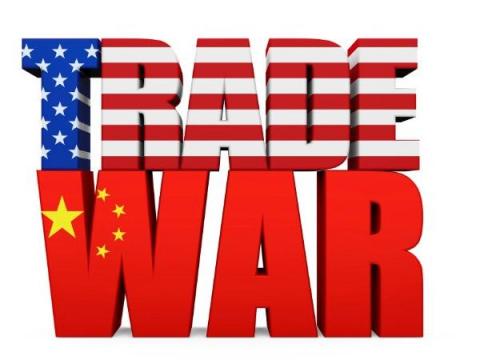Share
Biggest Round of China Tariffs Yet Will Hit Consumers, Investors and Small Businesses

Trump has started a trade war with China at the behest of a couple almost entirely unknown advisors. The impacts are negative to our economy, our business owners small and large, our consumers.... everyone.
Almost half of all Chinese imports into the U.S. are now subject to a tariff, for a total of $250 billion. China has already retaliated with tit-for-tat tariffs on billions of dollars of imported U.S.-made goods, noting earlier this month that trade officials there would not be swayed by Trump's tactics.
Unlike previous rounds of tariffs, the new list affects a much broader array of components and consumer goods, increasing the potential that American shoppers will start to notice higher prices on store shelves.
Analysts say the tariffs — which begin Monday at 10 percent and will rise to 25 percent on Jan. 1 — are likely to trickle down to retailers and consumers in the coming weeks and months, raising the prices of everyday household goods. While nearly 6,000 types of products, including seafood, suitcases and ski gloves, will be affected, industry leaders say big-ticket items such as consumer electronics, appliances and furniture will be among the hardest hit.
“We remain concerned with the continued escalation of tariffs against China [and] the impact of the wide swath of consumer goods — everything from baby products to furniture to lighting was on that list,” said Jonathan Gold, vice president of supply chain and customs policy for the National Retail Federation. “Tariffs are not the right approach,” he said, pointing out that even if costs aren’t passed along to customers, absorbing those expenses will hamper companies’ ability to invest in equipment, technology or its workers.
Although China has less clout to impose tariffs because of the significant trade deficit between the two nations, experts say the Chinese have other tools at their disposal to impose pain on American companies doing business in or with China, such as slowing down the movement of goods at customs, restricting American investment and disrupting the Chinese operations of U.S. companies with onerous new restrictions or inspections.
The prospect that increasingly belligerent trade talk — or tweets — could cast a chill over the markets more broadly is a major risk Trump takes with this kind of brinkmanship, experts said.
Tariffs are a tax on Americans. We pay more for every item we buy. It causes inflation that hits the lower and middle class who spend nearly all their income on goods and services to survive. Small businesses are particularly crushed by them.
Small businesses around the country say they are bracing for the latest round of tariffs, which could cut into already-thin profits and leave them with little recourse but to pass on additional costs to consumers beginning this holiday season. “Larger retailers may be able to find alternative sources or be able to absorb a price increase without passing the cost on to their customers,” said David French, senior vice president of government relations for the National Retail Federation. "But the smaller you are, the more vulnerable you are to the impact.”
Andre Phillips says he has no choice but to raise prices by as much as 10 percent. Phillips, a manager at Wyckes Furniture Outlet in San Diego, says manufacturers began notifying him two weeks ago that they would begin charging him 5 percent to 10 percent more on everyday goods such as dining chairs and bookcases beginning Monday, as the Trump administration’s latest round of tariffs on $200 billion worth of Chinese goods goes into effect. And if he doesn’t pass on that increase to shoppers, he says he’ll lose money on each item he sells.... tariff-related expenses will put him at an even bigger disadvantage against his largest competitors.
“A 25 percent bump at the wholesale level could end up being a 40 or 50 percent increase by the time something gets to the sales floor,” said Adam Rossi, owner of Adam Solar Rides, which sells electric bicycles, skateboards and hoverboards in Pittsburgh. “The American consumer just isn’t willing to pay that much more.”
Ken Kieran, owner of Union Farm Equipment in Union, Maine, says inventory costs have already risen substantially in recent months following a 25 percent tariff on steel imports. The price of a popular Chinese-made utility vehicle, for example, has risen $1,700 to $12,999 since March. Now he’s expecting another round of “across-the-board” increases... “Now you add in another tariff, and this could be catastrophic.”
Wilbur Ross, the multi-multi-billionaire Commerce Secretary, had the gall to say on television right to the face of the American people that this is all no big deal. He admitted everything will go up in price a bit, but whatever, so what? Seriously:
“If you have a 10 percent tariff on another $200 billion, that’s $20 billion a year..." Commerce Secretary Wilbur Ross told CNBC on how the average American family might be affected. “Because it’s spread over thousands and thousands of products, nobody’s going to actually notice it at the end of the day.”
Sources:
